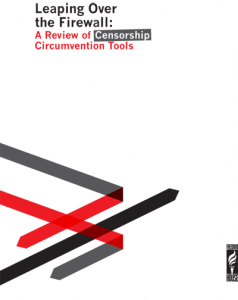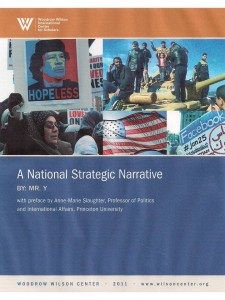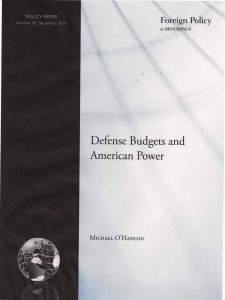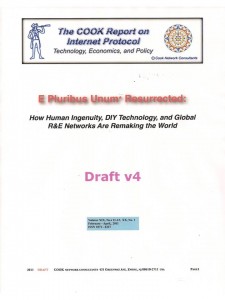Although making no reference to Buckminster Fuller and Medard Gabel that we could find, the International Futures Forum offers a useful series of pages on elements of the World Game that they work with. Here we publish the Twelve Factors and the underlying elements for each.
Reference: Internet Censorship Circumvention
Autonomous Internet, Counter-Oppression/Counter-Dictatorship Practices, Tools, White Papers
Global Voices Blog Critique from Jacob Appelbaum: My motivation for writing this response is to inform readers of the serious concerns that many people, myself included, have about the recent Freedom House report. I am always pleased to see more analysis of censorship circumvention and Internet security tools, but I have concerns about this report’s methodologies and resulting conclusions. The report in its current form could be dangerous to the users it aims to help.
The reporting methodology is sloppy at best and the information in the report is often inaccurate or poorly written. The report demonstrates a general disconnection from the language used by the projects and the circumvention community as a whole.

Internet censorship poses a large and growing challenge to online freedom of expression around the world. Censorship circumvention tools are critical to bypass restrictions on the internet and thereby to protect free expression online.
Circumvention tools are primarily designed to bypass internet filtering. Therefore, the core principle behind these technologies is to find alternative paths for data packets. These alternative paths use one or more collaborative servers in order to bypass the network of blocking mechanisms.
This document provides a comparison among different circumvention tools, both in terms of their technical merits, as well as how users of these tools describe their experience with them. The countries included in this report are Azerbaijan, Burma, China and Iran.
Phi Beta Iota: Within the emerging Autonomous Internet, these tools assume use of the existing grid, and can in turn be used by the authorities, sometimes with the collaboration of the Internet Service Providers, to identify dissidents. The Autonomous Internet seeks first to bypass local interception points (local solar-powered nodes using leased satellite communications), and ultimately to permit all individuals everywhere to enjoy the Internet for free and in liberty. Novices forget that anonymous is not the same as invisible, and that security is needed at the point of receipt as well (counter-intelligence outside the denied area is focused on identifying dissidents on the basis of leaks outside the denied area). NOTE: Freedom House has a trojan virus–if you don't see the deletion notice your security program is not up to par.
Reference: A National Strategic Narrative
Advanced Cyber/IO, Analysis, Augmented Reality, Collective Intelligence, Communities of Practice, Cultural Intelligence, Earth Intelligence, InfoOps (IO), Intelligence (government), Key Players, Methods & Process, Officers Call, Policies, Policy, Reform, Serious Games, Strategy, Threats, True Cost, White Papers
Reference: Cook Report on Internet Protocol V4 E Pluribus Unum* Resurrected: How Human Ingenuity, DIY Technology, and Global R&E Networks Are Remaking the World Part 1 of 2 Parts
Autonomous Internet, Book Lists, Monographs, White PapersReference: EU’s Afghan Police Mission
White Papers
Phi Beta Iota: NATO training of Afghan police a failure. The inability of all NATO participants, not just the US participants, to understand the Afghan culture and train, equip, and organize accordingly, is the primary reason for the continued failure at the strategic, operational, and tactical levels. Remarkably, the OSS.Net Afghanistan study is still in demand, as the only other useful document now available is the USMC culture study. Combined with the 120 day rotation cycle and the absolute naivete of those being cycled in, Afghanistan is a failure across the board.
See Also:
Reference: No More Secrets in a Transparent World
Government, White PapersNew Law and National Security Report – No More Secrets: National Security Strategies for a Transparent World
WASHINGTON, D.C., Feb. 3, 2011—Recent events highlight the difficulty of keeping secrets in today’s increasingly transparent world. A new report released by the American Bar Association’s Standing Committee on Law and National Security summarizes workshop discussions led by national security experts identifying national security strategies for addressing this challenge. The group examined the implications of a world without secrets and what today’s secrets involve.
The team that convened included government, private sector, non-profit and academic national security experts. Although members of the working group did not all agree in every aspect of the discussion, there was general consensus that the government and private sector “confront an enormous challenge in trying to learn how to prevail in an increasingly transparent world.”
The report recommends that the government operate with fewer secrets to gain a significant advantage over those who “continue to cling to traditional notions of indefinite information monopoly.”
To schedule an interview, or for more information, please contact ABA Standing Committee staff director Holly McMahon at 202/662-1035 or Holly.McMahon@americanbar.org.
To access the report, go to www.abanet.org/natsecurity or www.nationalstrategy.com
Continue reading “Reference: No More Secrets in a Transparent World”
Reference: Cutting the Defense Budget + RECAP
10 Security, 11 Society, Advanced Cyber/IO, Budgets & Funding, Military, Officers Call, Strategy, Threats, White Papers
Phi Beta Iota: The author, Michael O'Hanlon, remains one of our most respected commentators on defense, and his suggestions within this document are entirely reasonable. However, he does not go far enough. A 10% reduction of a military-industrial complex budget that has nearly tripled in 30 years is not serious, nor is there innovation in this document. The military-industrial complex must be reduced by 40% if not 50%: one third direct cuts; one third reallocation to Program 150 (diplomacy & development); and one third to thinkers and actual shooters–Cyber and Advanced Information Operations, Civil Affairs, Multinational Decision Support Centres, and long over-due investment in tactical intelligence, surveillance, & reconnaissance that is Of, By, and For the Strategic Sergeant, NOT Of, By, and For Lockheed, Harris, or the U.S. Air Force.
2001 Threats, Strategy, and Force Structure: An Alternative Paradigm for National Security
2008 U.S. Naval Power in the 21st Century
2009 Perhaps We Should Have Shouted: A Twenty-Year Restrospective
Continue reading “Reference: Cutting the Defense Budget + RECAP”


